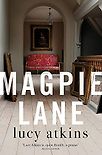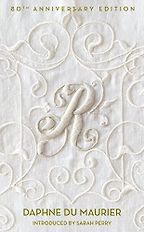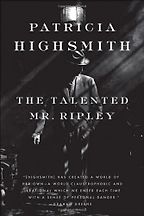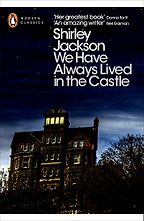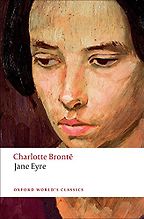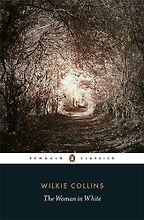Why did you want to choose classic thrillers? Do you feel they don’t get enough attention?
I gravitated towards the older classics because I feel that they are the origins of the genre that I’m writing in and not necessarily always recognised as such. I find it interesting to trace the history of this psychological suspense genre. Jane Eyre is one of the first psychological thrillers, though obviously it has lots of other things going on as well, and The Woman in White was the The Girl on the Train of its time.
With modern day thrillers, it’s also complicated by the fact that I know quite a lot of the people who are writing them. It would be quite difficult to single out the ones that I think are the best in the same way.
Do you think that some of the modern thrillers are as good as those written in the past?
The Woman in White got really mixed critical reviews—and so did Jane Eyre—at the beginning. It’s difficult to say what you mean by ‘good.’ In this genre ‘good,’ for me, is if it’s multi-layered and satisfying, interesting and slightly different. That, I think is a mark of quality. And, obviously, it’s got to be completely compelling and driving you onwards all the time, and the mechanism for doing that needs to be as invisible as possible.
Psychological suspense is such a phenomenon at the moment, it’s had a resurgence similar to the The Woman in White days. When Wilkie Collins published The Woman in White in Charles Dickens’s magazine, it became an absolute sensation. People were buying Woman in White perfume, white capes and calling their cats after the characters in the book. That spawned a whole lot of copycat psychological thrillers.
Today, the genre has had a rebirth since Gone Girl and The Girl on the Train became such mega bestsellers. So, there’s a lot out there that is copy-cattish and not that interesting. Then there are some that are genuinely compelling.
I think what happens is that you’re attracted to thrillers when you’re getting on the plane, when you want something that is readable and compelling to get you through the flight. But then a lot of what they’re selling in WH Smith at the airport is probably not that good.
Yes, which, I guess, is the same across contemporary fiction in general. But because it’s such an explosion—and publishers have caught on big time that these books sell if they’re marketed in the right way—there are some that probably aren’t as high quality or as deep and interesting and multi-layered as I would want a book to be.
There’s a fine balance between readable and quality because if it’s too literary then it’s not going to sell that well, is it?
I think that’s where the absolute key to the genre is. It is literary quality plus that narrative drive onwards, where you can’t put the book down because you’re so deeply involved in the world that the author’s created. It’s not that you’re falling for the tricks necessarily—though you may be—but it’s that you’re so compelled by the characters and by the situation and the oddity. That’s what I love about suspense when it’s done well: it’s really powered by oddness and creepiness and things that are just a bit off and unsettling. If it’s unsubtle, it fails.
“The really good ones have very profound human themes that reach out to you across centuries and still matter now”
That’s why Patricia Highsmith and Shirley Jackson are so brilliant. Often you can’t quite put your finger on why this is so distressing but it is and you can’t stop reading because you feel compelled to know where this character is going. It’s not so much where the plot is going that is interesting; it’s what on earth is this person going to do? And why am I so uncomfortable about it? And that’s what really compels me about the genre and that’s what I find reliably in the ones that have lasted. They are just so rich.
I like Agatha Christie, as I’m quite into the tricks. I think that’s what keeps me reading—as well as the expectation that it’s not going to be too earnest because there are all these tricks that will be quite fun to find out.
I think that’s where there’s a bit of a crossover with crime and psychological suspense. Psychological suspense doesn’t rely so heavily on the tricks and the plot twists and the intricacies but it has to have some of that. And, if it’s good, then it will have some of that without you realising that that’s happening.
So, moving to the first book you’ve chosen, Rebecca (1938), by the fabulous Daphne du Maurier. It’s been chosen a number of times on Five Books. Why do you like it?
Who doesn’t like it? Probably the main thing about Rebecca that I find completely compelling is the way that you, the reader, become complicit in a situation which, eventually, turns into a crime. It’s incredibly subtle, the way you’re drawn into this world. You’re blind—you’re as blind as the unnamed narrator—and you’re drawn in step-by-step-by-step until you’re so deeply in it that you are complicit in the result. I won’t say more as I don’t want to give away the plot. But I think that’s one of the reasons that it succeeds so brilliantly: it’s that you are involved, you become almost a character in the book.
What age did you read it and did you love it then?
I first read it when I was about 15 and I loved it for the atmosphere and the creepiness of it. I’ve read it since then, a couple of times. As an adult, the things that I admire about it are the cleverness of it, the setup, the fact that the narrator is never named, her development as a character, and then this massive absence-presence of Rebecca herself. Rebecca just dominates in her absence—more than any present character ever could. I find that really interesting, as a writer.
You’ve already mentioned Patricia Highsmith. Your second choice is The Talented Mr Ripley (1955). When did you first read it and what did you find in it?
I read it for the first time only about a year ago, when I properly discovered Highsmith. I had the film in my head, so I found it very difficult to imagine the characters in anything other than their film incarnations—because it was such a brilliant film. But, apart from the characters, I did find I was able to put the film aside and enjoy the writing.
What I adore about the book is how brilliantly she explores the idea of moral grey areas and how the main character does things in a sort of neutral space—a psychopathic neutral space—and Highsmith writes this in a quite nonchalant way, while building this ongoing tension and horror. You sort of love Ripley, as the novel moves on, but you are also horrified by him. I just think that’s genius: when you can get me deeply caring about a character who I also find appalling and frightening.
I know, because I read not just this book but a few others in the series, like Ripley Underground—there are four or five of them—but I never wanted him to get caught. I was always thinking, ‘Please don’t let him get caught!’ But why did I not want him to get caught?
You feel very sorry for him. That’s how she’s done it so cleverly, you feel he’s the underdog. Everyone can relate to that feeling of thinking that someone else’s life is much more attractive and glamorous and wanting to grab hold of that and have a part of it. We’ve all been there, at some point.
“I just think that’s genius: when you can get me deeply caring about a character who I also find appalling and frightening.”
You know that he’s had a really horrific life, somehow. Even though she doesn’t spell it out, you just know he’s had an awful childhood. You come out of it, in your heart, knowing his back story. And there’s a great deal of sympathy that sort of bubbles under the surface for this awful, dangerous person. That’s why I chose this book, I just feel that no one does grey areas better than Patricia Highsmith.
I’m glad you’ve picked her, because, if there’s anybody who enjoys thrillers but only reads what’s currently being published and reviewed in the newspapers, this is a book from the past that they need to know about.
Definitely. A lot of writers I know read her voraciously and admire her. I think she has, deservedly, got the acclaim now for her incredible skill. She’s a brilliant writer.
Next is We Have Always Lived in the Castle (1962) by Shirley Jackson, which I had never heard of — though it’s been recommended once on our site before. Was it also a recent discovery for you?
Yes, Shirley Jackson is relatively recent for me. Most people direct you to The Haunting of Hill House, which is her ghost story. I did think that was brilliant. I raced through it, loved it, admired it, but it did not get under my skin in the same way as We Have Always Lived in the Castle. It has a barely contained, unhinged feel to it that I find completely gripping.
It’s about two sisters who are left in a large house after their entire family dies from arsenic poisoning. There’s Uncle Julian as well, who is infirm in his wheelchair. They’re in this cut off unit. The villagers are all really hostile because they think that Constance, the elder sister, is the murderer—even though she’s been tried and acquitted of the crime.
So they’re in this slightly unhinged bubble and Merricat, the younger girl, has lots of superstitions and rituals. They never talk about the grief they must feel for their parents, brother and uncle. You get this sense that there are all these terrible family secrets and tensions that have gone on before the book happens. I really love the way this becomes part of the book without ever being explored. Jackson never actually goes there. But, a bit like Ripley, you get this feeling of all the surrounding layers which make the story so unsettling and so plausible.
And, of course, you know that the hostility that surrounds these sisters is going to breach the walls at some point. The tension builds so slowly and so brilliantly and you can’t put it down.
This book was written half a century ago. Do you feel, with any of these books, that there’s a danger they’ll feel dated?
They don’t feel like they’re happening now. You have a sense that this is happening at a different period. But the emotions and the feelings that these books elicit are universal. That’s why they’re so good. They are such archetypal fears and repulsions and desires that the fact that there’s an odd detail where you think, ‘My goodness that must have been in the 1960s’ doesn’t make it feel any less real.
Is Shirley Jackson having a bit of a resurgence?
There’s been a new biography of her that has had some attention. That’s what got me thinking about her and realising that I’d never read her work, and going straight to her books and devouring them. She wrote some really excellent stories as well, and some non-fiction about her life. She died very young, at 48. She was quite troubled and had an interesting life.
Next on the list is Jane Eyre (1847). Most people will have read this, though might not include it in the thriller genre. But you think it should be?
One of the rather sexist tags that’s been put on contemporary suspense fiction—much of it written by women and much of it read by women, though not all of it—is ‘domestic noir.’ That suggests it’s all about what happens in the home, or in a marriage.
Jane Eyre is about a deep love that develops between two people who have very complicated backstories. There’s also this dark woman in the attic—the mad woman—and the threat that she poses to the home; the knowledge that that home is going to explode, and that nothing is straightforward, and that there are secrets, and there are lies. All of those things are components of this genre that some people today call ‘domestic noir’. Jane Eyre in some respects—not in every respect but in some respects—is the original domestic noir.
I love the fact that it does all of those things and it unsettles and there’s a sense of building threat and building crisis in the book. But I also love the social commentary and the feminism. It’s my favourite book of all time. I’ve read it numerous times, but there’s one scene in it, which is sort of supernatural. Jane is considering marrying someone else and she hears Rochester’s voice calling her name. He’s in crisis, miles and miles away. She goes and finds him and there’s been this awful event. That scene, every time I read it or hear it, gives me goosebumps. I get goosebumps even just talking about it. There’s something about it, it is so profound and so powerful—perhaps because it’s a supernatural moment in an otherwise very grounded book. I just love that scene so much. For me, it’s the most powerful scene in the whole of English literature.
I haven’t read Jane Eyre since I was quite a lot younger. Is it a page-turner?
It’s Victorian literature and would have originally been published in three volumes. So there are passages that are very discursive and there is quite a lot of long, slow dialogue where they debate things. Those elements might seem to detract from labelling it a page-turner.
But it is one. It has all the ingredients that make a brilliant suspense book. You are deeply invested in this woman’s life and in how she’s going to get from A to B without being crushed or killed or just having a devastatingly bad time. Her spirit triumphs and you’re deeply involved in that process. And there’s this mysterious threat coming from inside the house, which is just genius: the mad woman bellowing in the attic. All the symbolism of that, I find really compelling: behind the buttoned up small Victorian woman who has to behave in a submissive way, there’s this subversive big, hairy, dark-skinned madwoman cooped up in the attic ready to burst out and set it all on fire. I love that.
So, basically, I should reread it.
I read it out loud to my daughter when she was about 15 and it’s just an incredible book. I think Charlotte Brontë’s most accomplished book is Villette. It’s probably a better book, it’s tighter and more sophisticated in some ways. But there’s something about Jane Eyre that is just deeply emotionally compelling for me.
Your last book is The Woman in White (1859) by Wilkie Collins, which has got to be one of my favourite books of all time. It’s hard not to love it.
Yes. It’s credited with being the beginning of the whole genre of suspense. That’s why I picked it. I’ve only read it twice, but it’s lingered in my consciousness: the images and the feel of it. He really is a master of the tricks. I read somewhere that there are 40 cliffhangers in it—he sort of invented the cliffhanger. And I like the Russian doll structure of all the different accounts. You gradually lift off each little doll’s body and find another plot strand and another secret. I love that. It’s very cleverly done.
“I read somewhere that there are 40 cliffhangers in it”
He was criticised for being more of a craftsman than a genius but actually, in some ways, there is an element of genius to being a great craftsman. There are some really big, moving, emotional scenes—like when he’s at the grave and thinks he’s saying goodbye and then there she is.
And the exploration of identity is fascinating. I think it’s often the way, that these books have an unstable identity theme which I am really interested in. That’s the huge thing about The Woman in White—who is she? Who she is changes and you’re constantly wrong-footed as a reader. That’s a theme across suspense books and I find it fertile and interesting.
I was quite intrigued to find that I could be so engrossed in a book that was written so long ago and find it so compelling. It’s surprising because, with Dickens, I find I get a little bit alienated by its being in another era; with Wilkie Collins I really don’t.
I think there is an element, again, of suspense here. When you’re working with archetypal fears, it feels so real. There are always those fears that a loved one will die and then that moment where the loved one has died but then comes back to life—effectively, that’s answering a deep need inside all of us to feel that death might not be final. That’s why the really successful novels, the ones that will last, often have themes that answer these deep human needs. It’s easy to dismiss these suspenseful, thriller, psychological books as being plot-driven or a bit of frippery but, actually, the really good ones have very profound human themes that reach out to you across centuries and still matter now. And they’re done so well that those themes can emerge powerfully.
I also wonder whether, in addition to that, there’s also something that’s familiar about a genre. A novel could go anywhere but, with suspense, you have a certain familiarity with where it might be going which might anchor you, even if it’s written a hundred years ago.
Yes, and you know that, if it’s good, you’re in for a nail-biting experience—that you will start to really care about what’s happening. It will alarm you. You will get to the end and you’ll survive. There’s a certain pattern that you know you’re going to go through. Ultimately, that’s rather reassuring.
Five Books aims to keep its book recommendations and interviews up to date. If you are the interviewee and would like to update your choice of books (or even just what you say about them) please email us at [email protected]
Five Books interviews are expensive to produce. If you've enjoyed this interview, please support us by donating a small amount.

